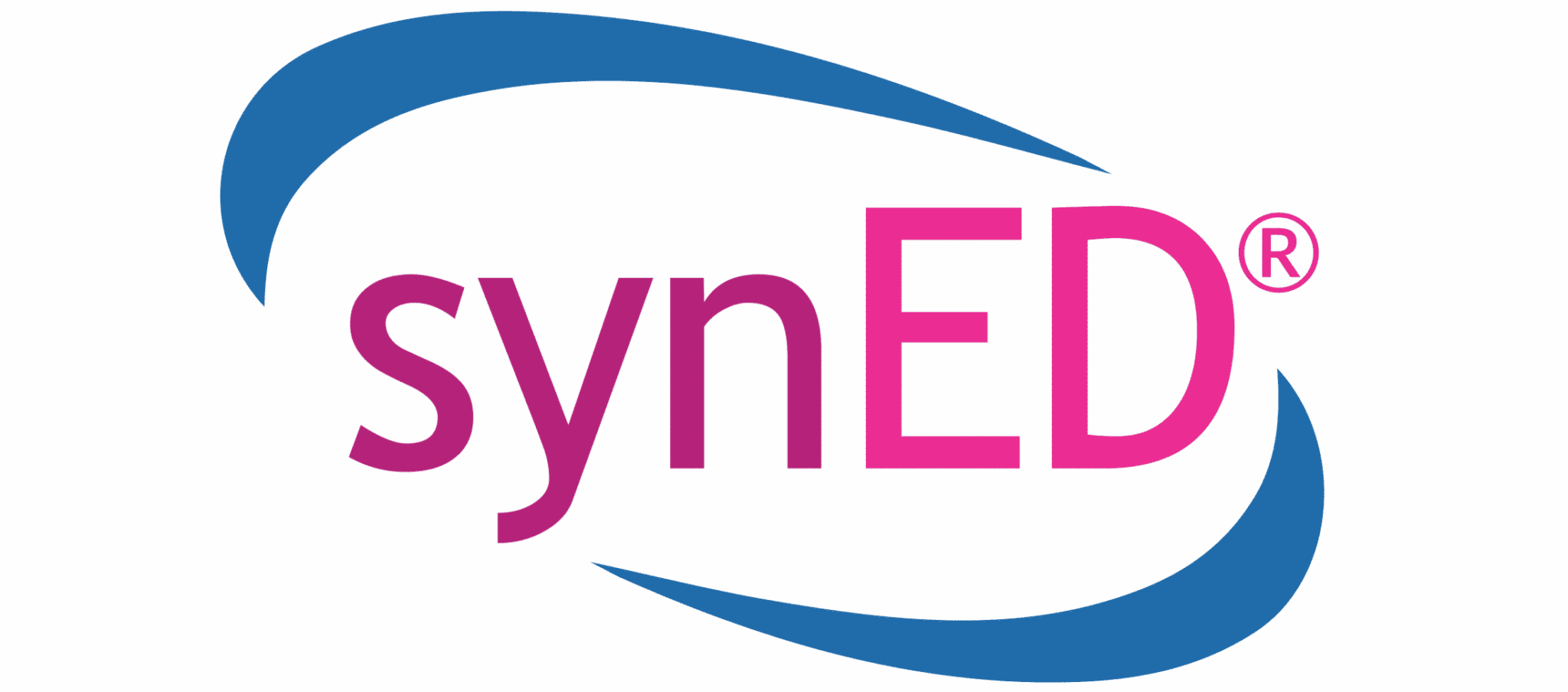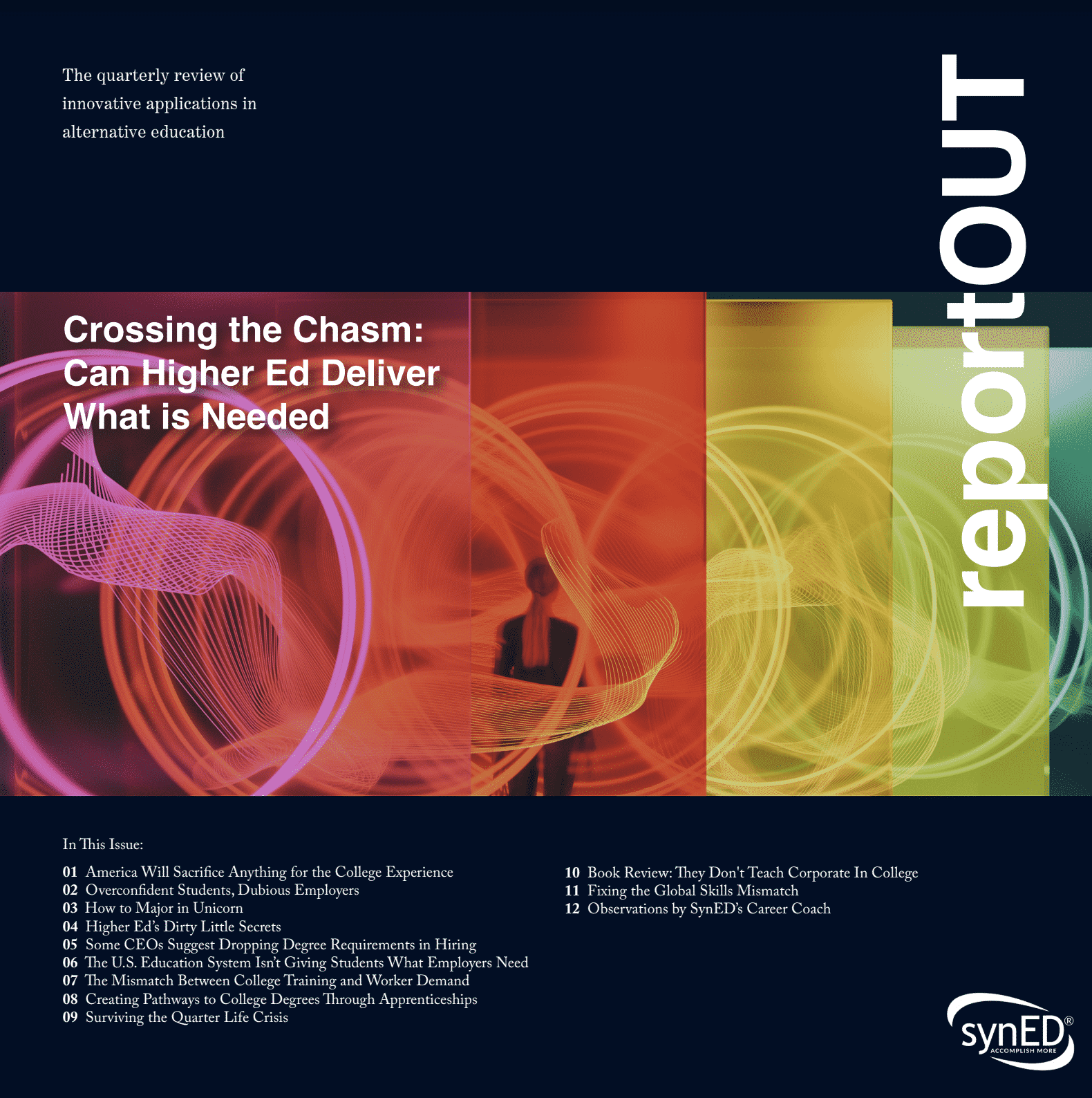The quarterly review of innovative applications in alternative education
EXECUTIVE SUMMARY
Falling enrollments during the pandemic revealed a looming crisis for America’s colleges and universities. Faith in the value of higher education is suffering the greatest decline in recent history.
An accelerating pace of change promises this trend will come to a head sooner rather than later, driven by the mega factors of technology and economics. Students and families are increasingly skeptical about whether the preposterous cost of college justifies the question of payback. Many employers have come to believe that educating their own workforce is a better alternative.
TOPICS DISCUSSED
01 America Will Sacrifice Anything for the College Experience
America is deeply committed to the dream of attending college. It’s far less interested in the education for which students supposedly attend.
02 Overconfident Students, Dubious Employers
College students may believe they’re ready for a job, but employers think otherwise. A new study identifies the gaps between graduates’ views of their skills and the views of those who hire them.
03 How to Major in Unicorn
Stanford is already to the 21st century what Harvard, or maybe the University of Chicago, was to the 20th: the institution that grooms an elite class for power and imbues it with the reigning ideology. Dropping out is now a status symbol in Silicon Valley.
04 Higher Ed’s Dirty Little Secrets
Higher education has many deep secrets that deserve a public airing. Some secrets aren’t secret to academics.
05 Some CEOs Suggest Dropping Degree Requirements in Hiring
Millions of jobs requiring a four-year college degree can be done without that level of education, some corporate leaders say.
06 The U.S. Education System Isn’t Giving Students What Employers Need
There’s a direct disconnect between education and employability in the U.S., where employers view universities and colleges as the gatekeepers of workforce talent, yet those same institutions aren’t prioritizing job skills and career readiness. This not only hurts employers, but also sets the average American worker up for failure.
07 The Mismatch Between College Training and Worker Demanding
Research shows that the criticism of community colleges regarding their ability to respond to changing markets is, to a certain extent, generally valid. Community colleges do increase certificates and degrees in growing occupations but only at half the pace that those occupations are growing.
08 Creating Pathways to College Degrees Through Apprenticeships
Community colleges are uniquely positioned to help scale up the number of high-quality apprenticeship opportunities and expand apprenticeship into industries like healthcare, information technology, business, and advanced manufacturing, where workers need educational credentials (degrees and certificates) to advance in their careers.
09 Surviving the Quarter Life Crisis
But for a generation that has been wired since birth with access to global opportunities — and instilled with the belief that “anything is possible”— the path to a rewarding career and satisfying adulthood can include many twists and turns.
10 Book Review: They Don’t Teach Corporate In College
This book is a solid roadmap for younger jobseekers who are just learning the ropes of working and need some guidance.
11 Fixing the Global Skills Mismatch
The workers of the future must learn continuously in order to remain in demand, maintain their performance throughout ongoing technological change, and train for activities that do not yet exist.
12 Observations by SynED’s Career Coach
A veteran career coach provides perspective on career coaching.

